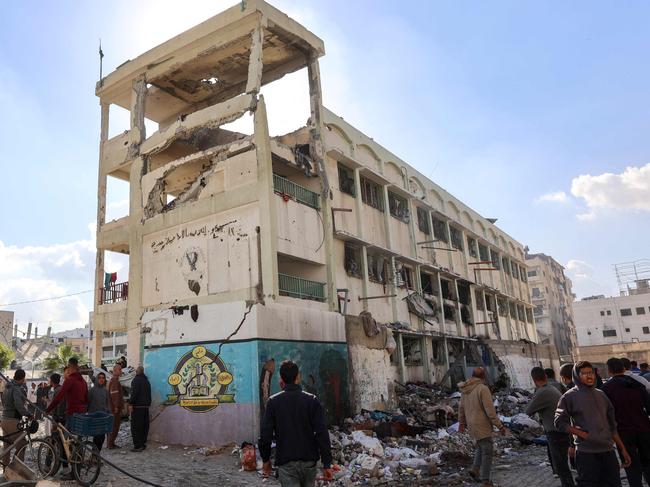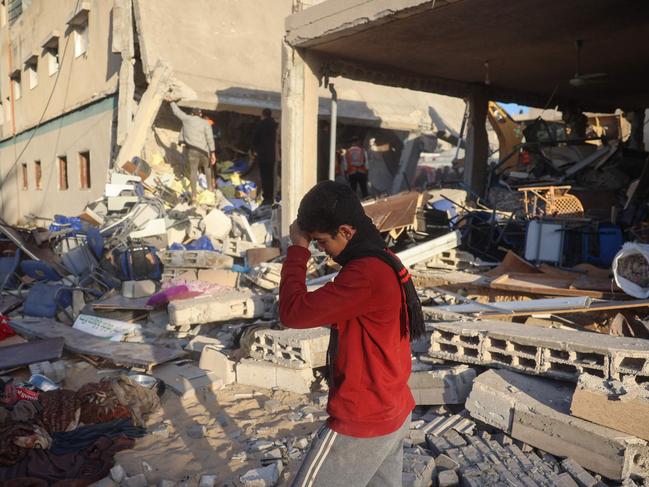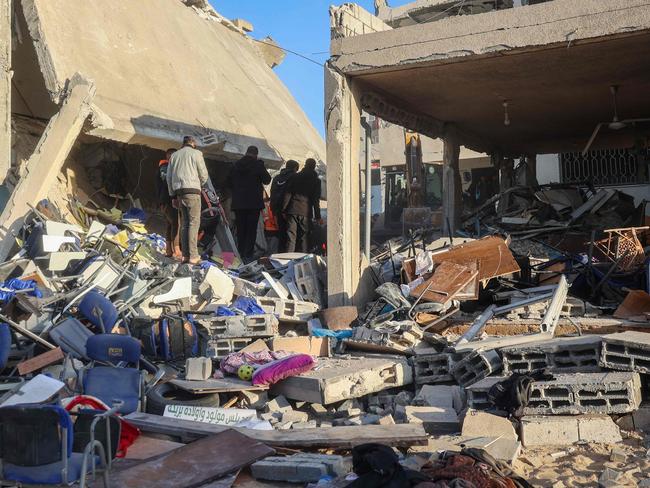Israel destroys Hamas control outpost, killing 17 people
Israeli strikes on Gaza killed 17 people on Saturday, including seven at a UN school housing displaced people that the Israeli military said was used as a Hamas command centre.
World
Don't miss out on the headlines from World. Followed categories will be added to My News.
Gaza’s civil defence agency said Israeli strikes on the territory killed 17 people on Saturday, including seven at a UN school housing displaced people that the Israeli military said was used as a Hamas command centre.
Civil defence spokesman Mahmud Bassal said there were seven people killed, including women and children, and at least 10 wounded “when Israeli warplanes targeted the Al-Majida Wasila school west of Gaza City”.

The school was run by the UN agency for Palestinian refugees but like many such facilities it has been turned into a makeshift shelter for those displaced by the war in Gaza.
The vast majority of Gaza’s population has been displaced by the war, often multiple times.
The Israeli military said it struck “Hamas terrorists who were operating in a command and control centre embedded” within the school.
Bassal said an Israeli strike on the town hall in Deir el-Balah in central Gaza killed mayor Deiab al-Jaro, and nine other people.
The Israeli military said it targeted Jaro in a strike on “the humanitarian area in Deir el-Balah”, accusing him of being “an operative in Hamas’s military wing”.

The strike came as Syria’s rebel leader Ahmad al-Sharaa told a Syrian television news channel that Israel had “no more excuses” to carry out airstrikes in Syria.
He said recent Israeli Defense Force attacks on Syria threatened an unjustified escalation in the region and called on the international community to help avoid this and guarantee the respect of Syrian sovereignty.
Hezbollah leader Naim Qassem said that Syria’s new rulers, who ousted the Lebanese armed group’s ally Bashar al-Assad, should not establish ties with neighbouring Israel.
“We hope that this new party in power will see Israel as an enemy and not normalise relations with it,” Qassem said in a televised speech, his first public remarks since Islamist-led rebels toppled Assad, who had Hezbollah’s military support during the civil war that began after a 2011 crackdown on anti-government protests.

In his speech on Saturday, Qassem maintained that the ceasefire agreement does not mean Hezbollah is required to lay down its weapons.
The deal stipulates that over a period of 60 days, the Lebanese army and UN peacekeepers would deploy in southern Lebanon, while Israeli military forces as well as Hezbollah militants withdraw from the border area — Hezbollah to the north, and Israeli troops back to their country.
Hezbollah was the only Lebanese armed group that refused to surrender its weapons after Lebanon’s 1975-1990 civil war, vowing to keep fighting Israel.




